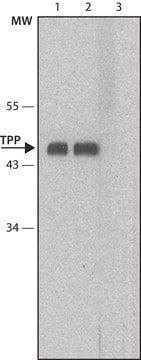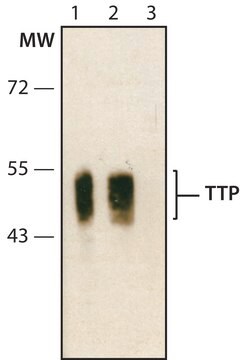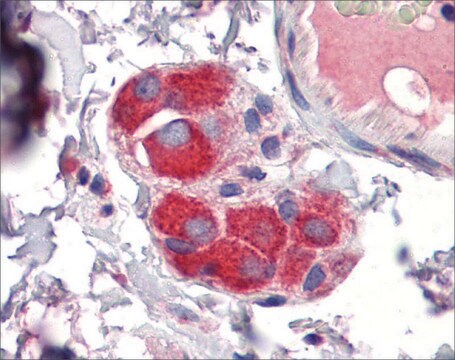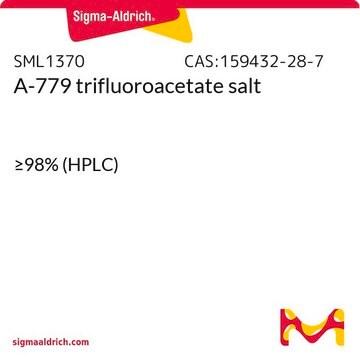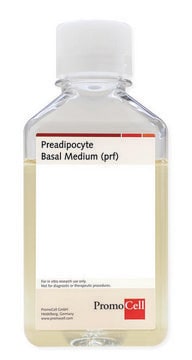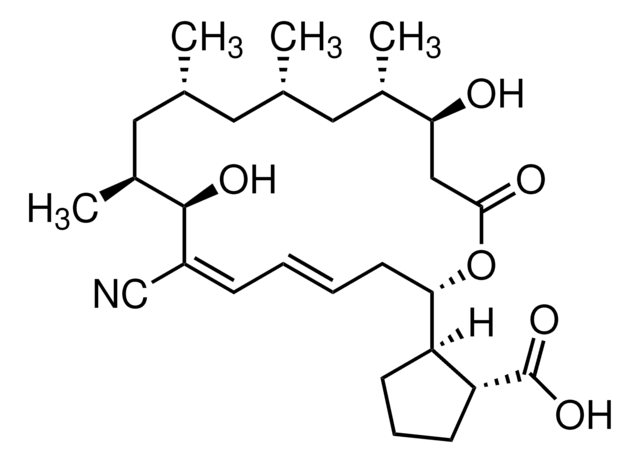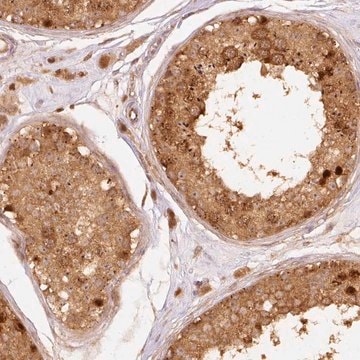T5327
Anti-TTP (N-terminal) antibody produced in rabbit

~1.0 mg/mL, affinity isolated antibody, buffered aqueous solution
Synonym(s):
Anti-G0/G1 switch regulatory protein 24, Anti-GOS24, Anti-Growth factor-inducible nuclear protein NUP475, Anti-NUP475, Anti-RNF162A, Anti-TIS11, Anti-Tristetraprolin, Anti-Zfp36, Zinc finger protein 36 homolog Protein
About This Item
Recommended Products
biological source
rabbit
Quality Level
conjugate
unconjugated
antibody form
affinity isolated antibody
antibody product type
primary antibodies
clone
polyclonal
form
buffered aqueous solution
mol wt
antigen ~50 kDa
species reactivity
human
enhanced validation
recombinant expression
Learn more about Antibody Enhanced Validation
concentration
~1.0 mg/mL
technique(s)
immunoprecipitation (IP): 5-10 μg/mL using lysates of RAW264 cells induced with 10 ng/mL LPS for two hours
western blot: 0.5-1.0 μg/mL using lysates of RAW264 cells induced with 10 ng/mL LPS for two hours
UniProt accession no.
shipped in
dry ice
storage temp.
−20°C
target post-translational modification
unmodified
Gene Information
human ... ZFP36(7538)
mouse ... Zfp36(22695)
rat ... Zfp36(79426)
General description
Immunogen
Application
- RNA EMSA supershift
- immunoblotting
- ribonucleoprotein immunoprecipitation (RNP-IP)
Biochem/physiol Actions
Target description
Physical form
Disclaimer
Not finding the right product?
Try our Product Selector Tool.
Storage Class Code
10 - Combustible liquids
Flash Point(F)
Not applicable
Flash Point(C)
Not applicable
Personal Protective Equipment
Certificates of Analysis (COA)
Search for Certificates of Analysis (COA) by entering the products Lot/Batch Number. Lot and Batch Numbers can be found on a product’s label following the words ‘Lot’ or ‘Batch’.
Already Own This Product?
Find documentation for the products that you have recently purchased in the Document Library.
Our team of scientists has experience in all areas of research including Life Science, Material Science, Chemical Synthesis, Chromatography, Analytical and many others.
Contact Technical Service
